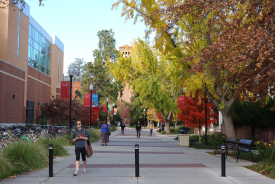On Tuesday, the Food and Drug Administration (FDA) approved a new drug that can treat both relapsing-remitting and primary progressive multiple sclerosis (MS). This marks the first time that a therapy has become available for severe forms of the disease.
The drug, ocrelizumab (brand name Ocrevus), is the first to reflect the current scientific understanding of MS. It also highlighted the importance of clinicians and scientists like Stephen Hauser, chair of neurology at UC San Francisco, who work to transform research into cures for patients.
In UC San Francisco's official website, it was reported that the drug targets B cells in the human body. The team, led by Hauser, took decades to expound on the science behind multiple sclerosis and defended findings that contradicted long-standing assumptions as well as translating the science into a therapy.
MS is a disease that allows the immune system to attack the protective myelin covering nerve cells and stripping them. Hauser and his team's study found that B cells lead this attack by mistaking myelin protein for harmful agents. This, in turn, leads to inflammation that disrupts the communication between nerve cells.
The disease typically strikes in early adulthood and it advances over the years, leading to eventual disability. Patients can develop muscle weakness, incoordination, bladder difficulties, visual impairment and cognitive problems depending on which areas the inflammation occurs.
The researchers confirmed that the new drug, ocrelizumab, can block the inflammation that drives MS. It cut annual relapse rates by 47 percent, reduced disability by 43 percent and shrank inflammatory lesions in the brain by 95 percent.
MedicalXpress reported that a separate clinical trial demonstrated that the drug can slow the advance of primary progressive MS. This type of MS is known to be resistant to treatment until now.
The team's findings showed that MS patients can be treated with therapy that can completely block the inflammation in myelin, which causes relapses and remission. Hauser added that further studies will change the majority's outlook of the disease.
© 2025 University Herald, All rights reserved. Do not reproduce without permission.








